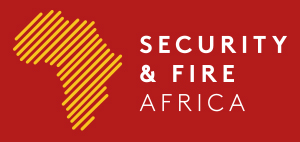14 Feb Angelina Jolie opens UK centre to fight warzone violence against women
Hollywood star says centre at LSE aims to put empowerment of women at top of agenda of ‘finest minds, in the best academic institutions’
Jolie, a special envoy for the UN high commissioner for refugees (UNHCR), has just returned from northern Iraq, where she met some of the millions of refugees forced to flee from their homes due to Islamic State (Isis) violence. She said students of the centre on women, peace and security at the London School of Economics (LSE) had the chance to change the world.
“If you were to ask me who I think this centre is for, I picture someone who is not in this room today,” Jolie said. “I think of a girl I met in Iraq three weeks ago. She is 13 years old, but instead of going to school, she sits on the floor in a makeshift tent.”
The girl was captured by Isis as a sex slave, and repeatedly raped, Jolie said. “Now she may never be able to complete her education, or get married or have a family, because in her society victims of rape are shunned, and considered shameful. To my mind, what we have begun today at LSE is for that Iraqi girl and others like her.”
The Hollywood actor, director and international women’s rights campaigner was joined at LSE by the former UK foreign secretary William Hague. The pair have worked together for three years on an initiative to prevent sexual violence in conflict.
A four-day summit hosted by Jolie and Hague in June last year, as part of the UK government’s Preventing Sexual Violence in Conflict initiative, resulted in a protocol signed by 151 countries and the LSE’s centre on women, peace and security is the latest step in trying to combat the use of rape as a weapon of war.
The groundbreaking LSE centre on women, peace and security will gather key thinkers, activists, policymakers and academics together in order to better tackle intransigent global problems such as the prosecution of warzone rapists and women’s engagement in politics.
Hague, who announced that the UK government would provide £1m from money recuperated after the Libor scandal, described seeing sexual violence in conflict zones throughout his tenure as foreign secretary, but said that though it was “a major factor in perpetuating conflict and holding back development” he noted it was “hardly talked about by foreign ministers or even considered a security issue”.
“Crimes against women have been accorded a lesser priority throughout history,” he said. “Sexual violence in conflict involves the deliberate targeting of women and children and men, in ways that often simply defy the power of description.”
Hague said the world had entered a period “of systemic instability” and that sexual violence was often seen as an inevitable part of war. “Despite this, we always have to strive to do something else as the United Kingdom, and that is to try to improve the condition of humanity … We can overcome that feeling that it’s a hopeless matter, that you can never change it.”
He read messages of support from likely US presidential candidate Hillary Rodham Clinton, who said the LSE centre would help give women “the tools and resources to break the barriers that keep them from contributing and participating fully in their governments, economies and societies”. The issue was the “unfinished business of the 21st century,” she added.
The US secretary of state, John Kerry, wrote: “This initiative would be welcome at any moment but it is especially timely now as we strike to prevent further atrocities, by Daesh, al-Qaida, Boko Haram, al-Shabab and other terrorist groups that are kidnapping and abusing women and girls and are consigning thousands into slavery.”
To coincide with the opening of the LSE centre, Jolie and the UNHCR have released two powerful short films – published exclusively on theguardian.com – that tell the stories of women who have suffered violence at the hands of Islamic State (Isis).
Jolie filmed the shorts during a visiting to a Kurdish refugee camp in Dohuk, northern Iraq, last month. Dohuk is home to some of the 2.1 million Iraqis who were forced to abandon their homes in 2014 after the invasion of Isis.
The first film tells the story of Sabreen and her little sister, Dilvian, who were held in captivity for four months after her father and the men of her village were killed by Isis fighters. The women were rounded up and taken to Syria to be sold. Separated from their mother, they ended up in Raqqa, where Sabreen was tortured and her little sister was forced to watch.
“For one hour a day they electrocuted me,” Sabreen says in the film. “They put electric cables to my head, my hands and my feet. I was crying and begging him to stop but he wouldn’t listen.”
The second film shows Jolie speaking to a 58-year-old Yazidi woman, Amusha, whose daughter was among dozens of young women kidnapped by Isis fighters and believed to have been taken to Raqqa to be sold as slaves. Amusha tells a clearly moved Jolie of the day her daughter was taken: “They [Isis] brought buses and packed them with young, beautiful girls,” she says.
“I cannot fathom why it has taken so long. I cannot fathom why it has ever been alright to treat women this way.”
Christine Chinkin, professor of law at LSE and head of the new centre, said it would provide an opportunity to further her long-term commitment “to ending the marginalisation of woman’s human rights in academia, including the right of women to be free from all forms of violence”.
The centre will be hosted in the LSE’s new Institute of Global Affairs, which will offer an MSc program in women, peace and security from 2016.




No Comments